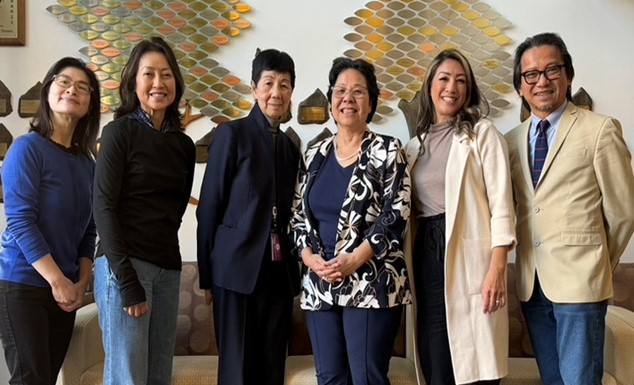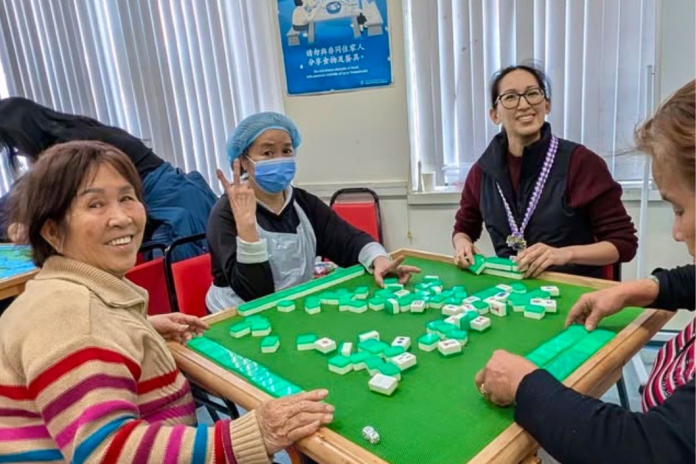Serving Older Adults
Region 3
The population of the San Francisco Bay Area is becoming older. This aging population is in the faces of the older Chinese women living in Chinatown and throughout San Francisco.
They often live in single room apartments with shared bathrooms and kitchens, without any family support. There is no air conditioner to keep them safe during extreme heat days or digital access to receive information. Most speak Mandarin or Cantonese and may not read Chinese. If they do, they prefer traditional Chinese for written materials.
Because of the anti-Asian sentiments and violent incidents in the Bay Area, they are fearful of going out alone, becoming increasingly isolated.

Self-Help for the Elderly and OCPSC Staff
Self-Help for the Elderly (SHE), a community-based organization, is deeply involved and respected in the Bay Area community. They have been providing services and support to seniors since 1966 and embody the true meaning of “trusted messenger.”
They recognize the challenges of reaching monolingual older adults and those who cannot access information and benefits.
Anni Chung, the previous co-chair of San Francisco’s Complete Count Committee for Census 2010 and 2020 and President and CEO of Self-Help for the Elderly, understands the importance of language access and combating misinformation. Her valuable experience leads the organization in their effective outreach and advocacy for vulnerable older adults.
Staff member Kifir Hu, with his many years of outreach experience and knowledge of the Asian community, understands the best ways to conduct outreach with the elderly is to connect in-person through social events.
Their holistic outreach strategies include utilizing WeChat, going to where community members live to provide information and assistance with an array of services to meet essential needs.

Staff playing mahjong with residents
Self-Help for the Elderly uses the WeChat App to provide customized information in Chinese with hundreds of subscribers. Outreach workers and case managers connect older adults to services and programs, from Asian food assistance to translation services. Staff meet individuals where they are to provide information, through home-delivered meals cooked with Asian vegetables, at resource fairs and festivals, and running 15 senior centers. Their wellness checks, especially during extreme heat, promote staying hydrated and cool.
These visits are especially helpful for community members who are alone or homebound. Some may need mobility or escort services because of the fear of Asian hate incidents. While reaching older adults with important information and services, staff have also addressed many client’s isolation and loneliness.
Seniors stay connected through educational workshops and wellness activities at their senior centers, creating a sense of belonging and community.
